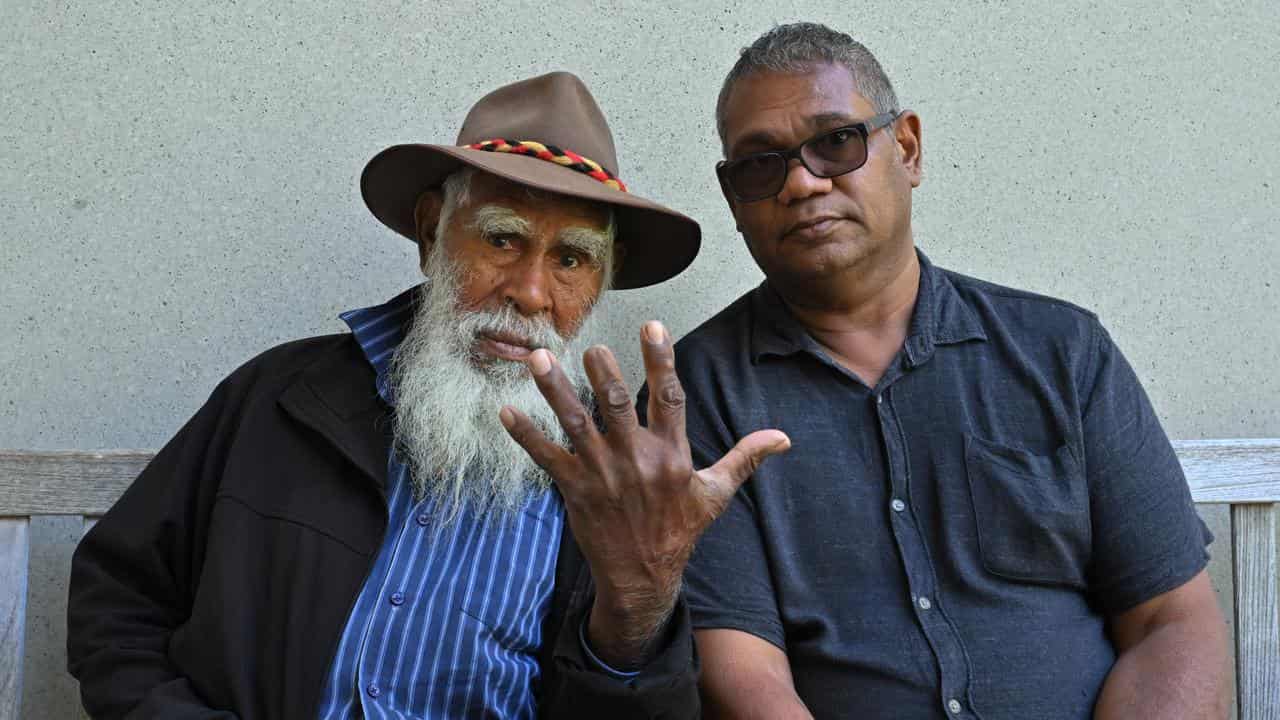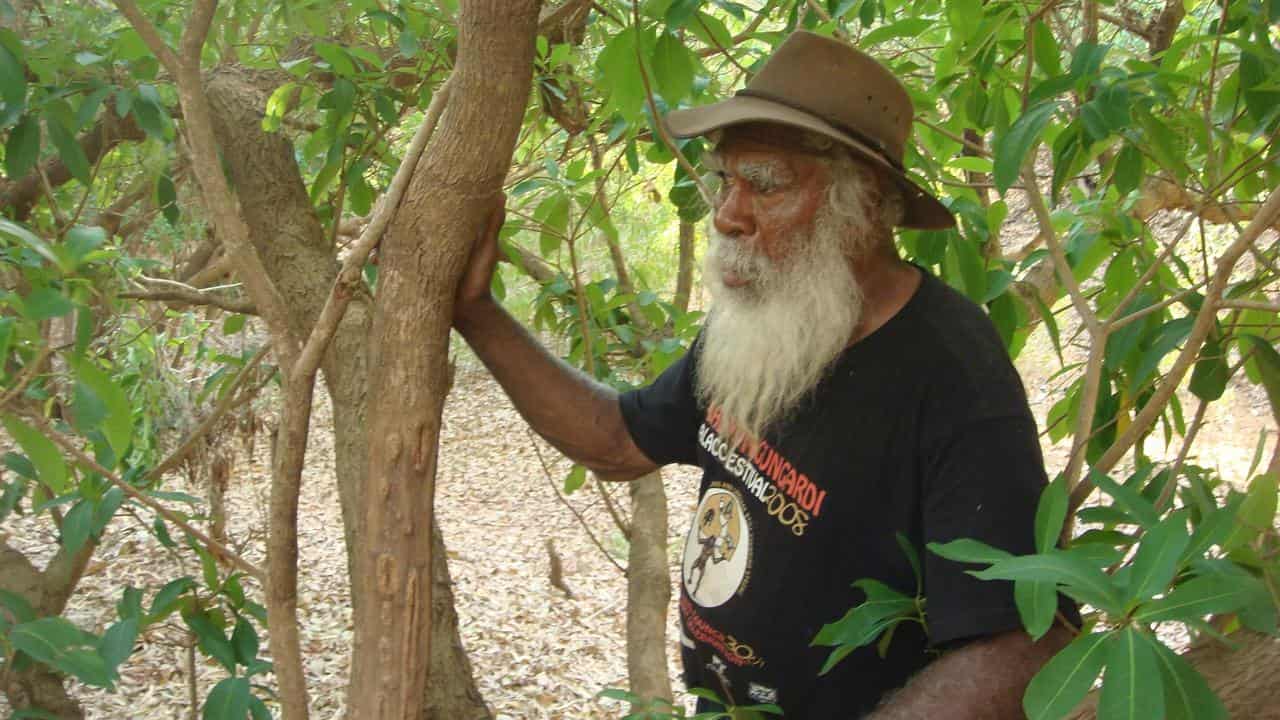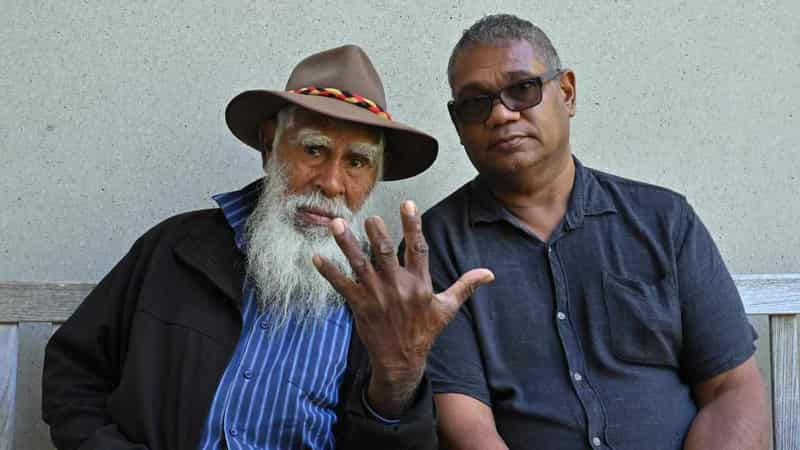
John Watson, his son Anthony and some friends were fishing on their country in the Kimberley in 1986, hoping to catch a tasty meal, when a crocodile took objection - and John's finger.
They immediately treated the wound with bark and gum from the mudjala mangrove tree, medicine their Nyikina Mangala ancestors had been using for generations to relieve pain and also for stunning fish, to make them easier to catch.
"The pain that dad endured, because it's very itchy when you do get crocodile bites, we used the mudjala and it helps numb the pain," Anthony Watson told AAP.
"Blood was still gushing out, so he used the gum to actually seal the blood coming out because his finger was taken off."
John was taken to hospital and shared his story with the media.
On the other side of the nation at Griffith University in Brisbane, Professor Rodney Quinn read with interest John's story about pain-relieving bark and contacted him.
The Nyikina Mangala people and Griffith University formed a partnership under the leadership of John Watson and Prof Quinn, seeking to identify what active compounds were present in the bark.
Combining thousands of years of traditional knowledge with western science has revealed a novel, natural remedy for the treatment of severe pain.

The bark contains two classes of compound, one is effective for inflammatory pain and the other mitigates nerve injury.
The resulting product - likely to be a topical gel - will be based on the complex mixtures present in the bark paste.
The project is powerful not only for its outcomes, but also its approach in retaining traditional ownership and respect for the integrity of traditional knowledge, meaning the Nyikina Mangala people will benefit from commercialisation.
"It opened the door for traditional owners to try and put their medicines on the shelf, if they wish to," Anthony Watson said.
"Hopefully, it opened up the window to get the engagement going and see how traditional owners can benefit.
"We need to create industries."
This treatment holds promise as a gel for athletes at the 2032 Brisbane Olympics, and heralds widespread application for traditional knowledge, while maintaining Aboriginal ownership.
"We'd be happy to share it with (Matildas star) Sam Kerr, she's so nice. She's awesome," Anthony Watson said.
Last Thursday night, John Watson and Prof Quinn were named the inaugural recipients of the traditional knowledge innovation award at the Australian Academy of Technological Sciences and Engineering’s annual awards in Canberra.
"We've done a lot of community projects, so to be recognised is a bit of a shock," John Watson said.
"It's a bit of an honour to be recognised for those decades of work and it's rewarding as well."
The Australian Research Council has funded an Indigenous-led project that aims to improve the pathways for Aboriginal medicines to gain Therapeutic Goods Association approval and shifting the mudjala medicine project closer towards commercialisation.
Led by ANU School of Regulation and Global Governance’s Dr Virginia Marshall, an Aboriginal lawyer and academic, the ARC project is investigating the barriers and pathways to commercial development of Indigenous traditional medicines.









